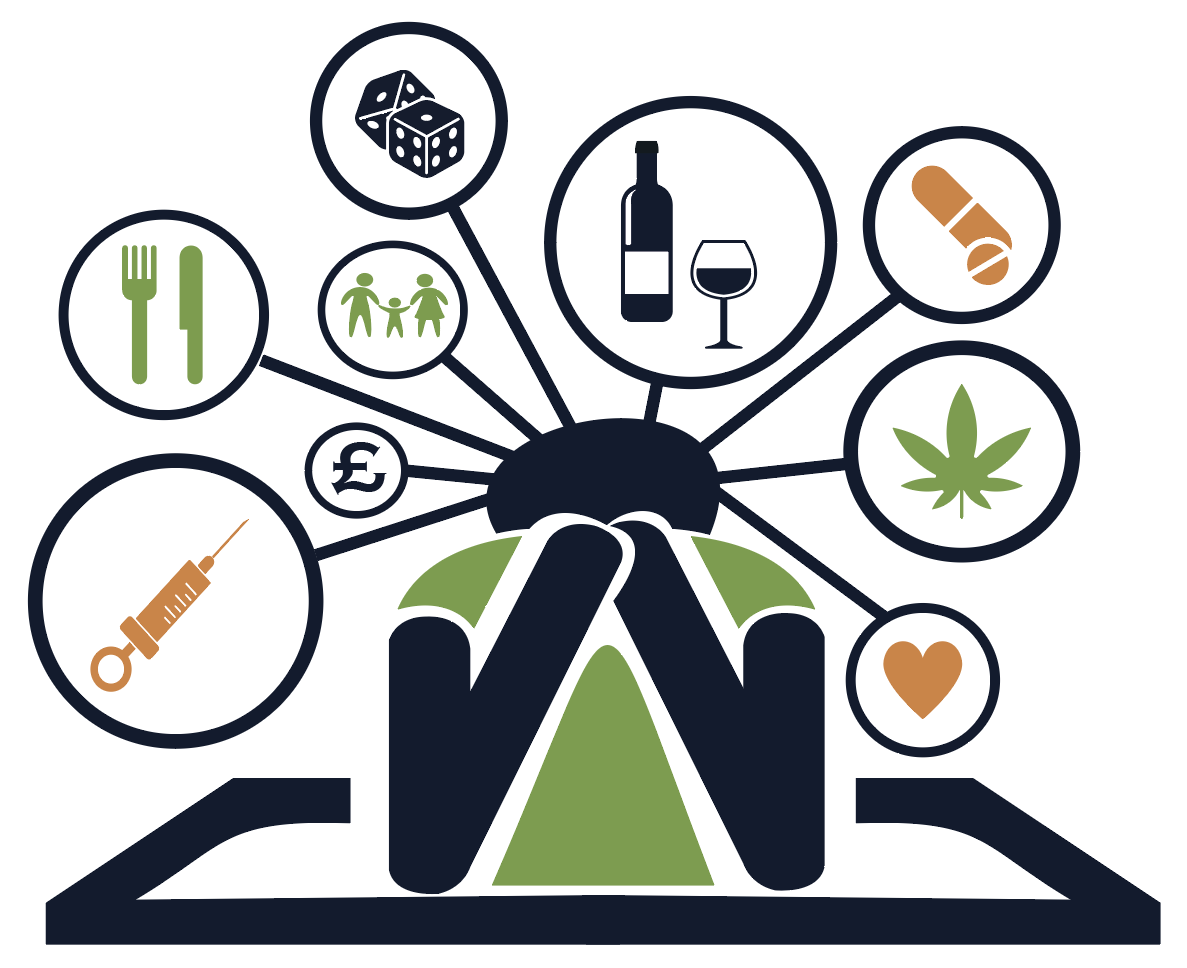Alcoholism
Alcohol, unlike other drugs, is legal, socially accepted and widely encouraged. It seems that the glamour associated with alcohol overshadows the fact that it continues to be “… the leading risk factor for ill-health, early mortality and disability and the fifth leading risk factor for ill-health across all age groups.”
“In England in 2015 there were around 300k potential years of life lost due to alcohol.” –Public Health England. BITC, Drugs, alcohol and tobacco: a toolkit for employers.
“Every day, 20 people die as a result of their drinking. But alcohol harm is not inevitable.” – AlcoholChange.org.uk

Shifting the cultural norms associated with addiction and recovery opens up a safe space for those who may be too scared to either approach a colleague about their own personal concerns around their drinking or even ‘come out’ as a recovering addict within the workplace. By creating a space to talk more freely about alcohol addiction we enable people to build their confidence and ability to help improve their own drinking behaviours.
Addressing addiction more freely in the workplace gets people to talk more openly about balancing the spectrum of drinking cultures that sit within our society.
Drugs
Due to the socio-stereotypical views that are ever-present around drug use today, it is safe to assume that individuals are less likely to approach their employer and admit they have a drug problem in comparison to an alcohol problem.
According to Drug Misuse: Crime Survey for England and Wales, an estimated 8.5% of 16–59-year-olds admitted to taking any drug last year. Therefore, it is imperative that organisations and individuals treat drug misuse as a health issue and follow the same guidelines. Like alcohol addiction, an equally safe space must be created to normalise the discussion around drug misuse and the dangers involved.
This starts from the top-down, from the Senior Leadership Team (SLT), managers and supervisors, to the wider employees, training must be implemented to recognise the signs of problems with drug misuse and the safest approach that aims to protect and support any affected employees rather than punishing them.
Addressing addiction more freely in the workplace gets people to talk more openly and gives the opportunity to destigmatise the taboos of drug misuse and recovering addicts.
Addiction
We recognise that addiction comes in a variety of other forms besides drugs and alcohol. At Recovery Confident, we believe each of these to be of equal standing to drug and alcohol misuse and therefore should be treated as such. These can include (not exclusively) areas such as:
- Debt Addiction
- Food Addiction
- Sex and Love Addiction
- Gambling Addiction
Addiction can have devastating affects on people’s day-to-day lives. According to GOV.uk, 17% (22,493) of adults in 2020 who entered treatment for addiction said they had a housing problem. Equally, nearly two-thirds (82,613) starting treatment for their addiction also had a mental health treatment need.
Subsequently, it is vital for organisations to create an open atmosphere where employees feel safe enough to approach senior management and disclose their addiction(s) with the view of seeking the help and support required.
Addressing addiction in all its forms, alongside the support your organisation offers, can help manufacture a judgement-free environment within the workplace. This not only enables the individual as they begin the road to recovery but will equally begin to normalise conversations within your organisation around addiction as a whole.
Subsequently, it is vital for organisations to create an open atmosphere where employees feel safe enough to approach senior management and disclose their addiction(s) with the view of seeking the help and support required.
Addressing addiction in all its forms, alongside the support your organisation offers, can help manufacture a judgement-free environment within the workplace. This not only enables the individual as they begin the road to recovery but will equally begin to normalise conversations within your organisation around addiction as a whole.
